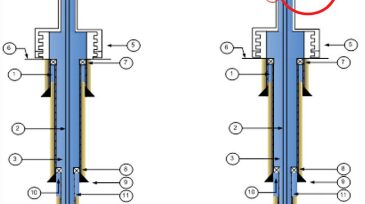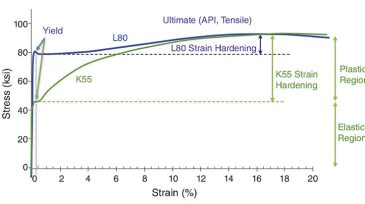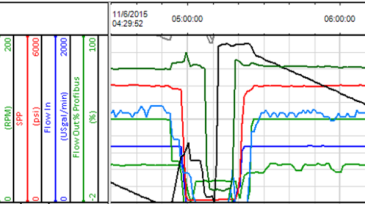Completions
Intelligent completions could improve many of the world’s oil and gas wells, but not all are suited to the technology. There is another option.
Casing deformation has emerged as a major challenge in China’s unconventional oil and gas fields, prompting the development of new solutions to address the issue.
The US supermajor is using one of its lowest-value hydrocarbon products to generate double-digit production increases in its most prolific US asset.
-
Nonaqueous drilling fluids have been used extensively by the industry, particularly in complex drilling scenarios. They carry some concerns, however, with implications for well integrity.
-
Managed-pressure drilling (MPD) challenges the conventional drilling paradigm, along with drilling-contractor and operator policies and standards. Conventional drilling practices for connections, flow checks, tripping, and well control have been long understood and standardized.
-
In this study, pressure-while-drilling technologies are combined with software simulations to differentiate drilling-fluid thermal expansion, wellbore ballooning, and formation influx during riserless drilling operations.
-
A commission that oversees water quality for the watershed that supplies Philadelphia and half of New York City with drinking water took another step toward permanently banning natural gas drilling and hydraulic fracturing, despite industry opposition.
-
Fracturing reservoirs effectively can be like boxing. Moving in close enough to land a powerful punch often means a fighter has to take some hits. To effectively develop all the productive rock in a lease, new wells are drilled as close as possible to older ones, making frac hits inevitable.
-
Secrecy lies at the heart of invention and capitalism to reward innovators with exclusive rights to their creations. But that secrecy can also come at a cost. With drilling and fracturig, the ingredients and chemicals used to obtain oil and gas are legally allowed to be kept confidential.
-
Exception-based monitoring of real-time data by remote operators can increase operational awareness of drilling crews, which can significantly minimize well-control risks by taking proactive and precise actions.
-
The first company to obtain a permit for hydraulic fracturing in Illinois announced that it will not use it, citing market conditions and the state’s “burdensome and costly” regulations.
-
A hybrid downhole microseismic and microdeformation array was deployed to monitor fracture stimulation of a vertical coal-seam-gas (CSG) exploration well in the Gloucester Basin in New South Wales, Australia, to provide more-accurate insight into overall fracture height.

![JPT_2025-09_GuestEd1_SS_382853197[4].jpg](https://assets.spe.org/dims4/default/d929328/2147483647/strip/true/crop/850x566+0+1/resize/850x566!/quality/90/?url=http%3A%2F%2Fspe-brightspot.s3.us-east-2.amazonaws.com%2F8a%2F95%2Fe4e82cb54fd597d497a5b1267f8a%2Fjpt-2025-09-guested1-ss-3828531974.jpg)









